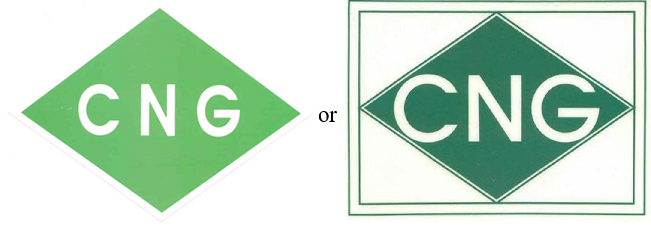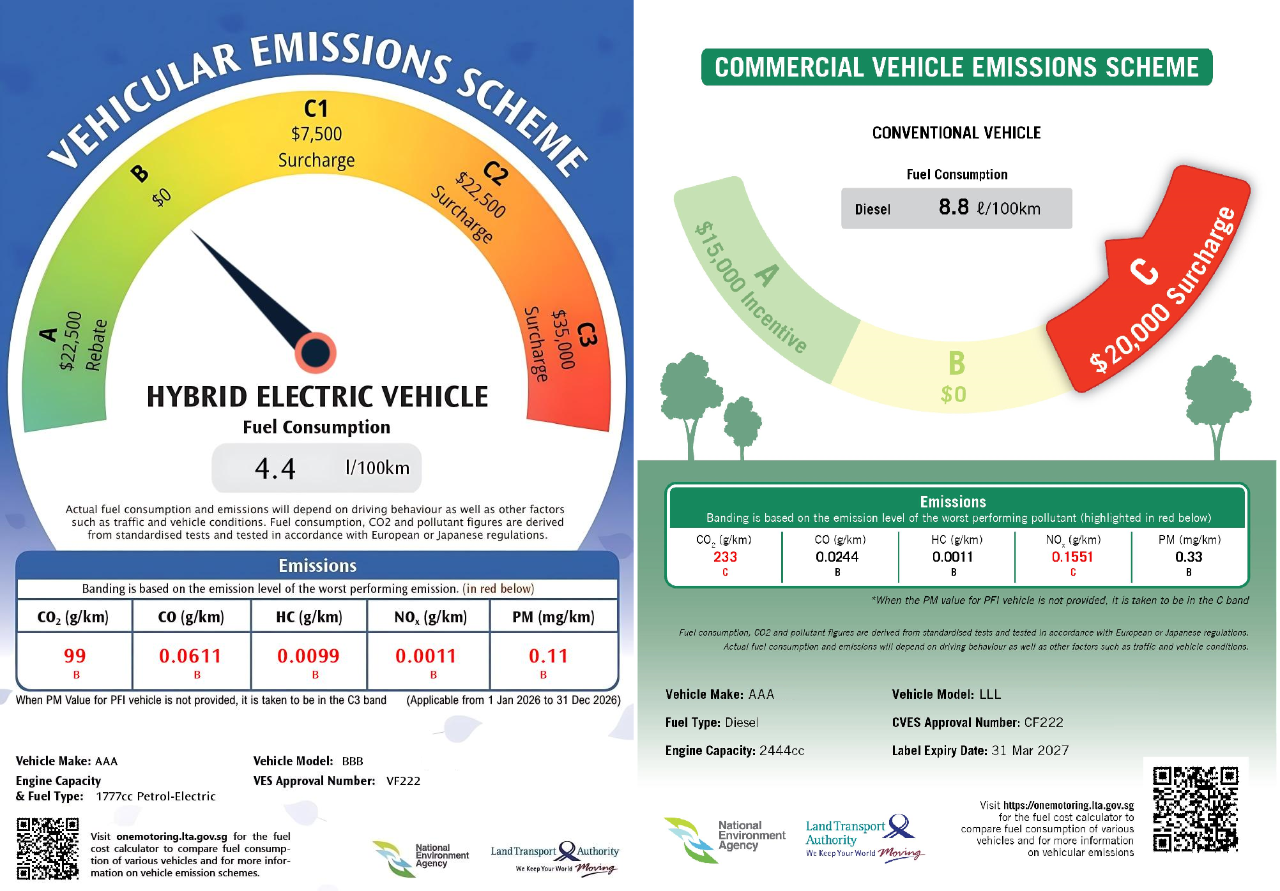All vehicles use fuel to provide energy to the engine. A fuel-efficient vehicle is not only less expensive to run, it also minimises the impact on the environment through reduced emissions.
At a glance
Understanding Fuel |
A vehicle can run on different types of fuel, such as petrol, diesel, Compressed Natural Gas (CNG), electricity or a combination of petrol and electricity.
Your vehicle’s fuel type determines its vehicle emission charges.
If your vehicle runs on CNG, it will be subject to additional requirements.
You can convert your vehicle to a CNG vehicle if it meets the requirements. |
Determining fuel efficiency and vehicular emissions of your car or light goods vehicle |
There are 2 tools that help you assess the fuel efficiency of a car or light commercial vehicle: The Fuel Cost Calculator also helps you compare fuel costs, fuel economy and vehicular emissions scheme bandings between different car and light commercial vehicle models. |
Related digital services |
Fuel Cost Calculator |
Find out more |
Learn more about fuel policies
Download the Price Kaki app for iOS/Android by CASE to compare fuel prices.
Please take note that upon clicking the links, you are now proceeding to a third party app. Information hosted on the app is subject to change without advance notice, and you should contact Price Kaki for any enquiries/feedback. |
Understanding Fuel
Some vehicles are powered by petrol, diesel or Compressed Natural Gas (CNG), while some run on electricity or a hybrid of petrol and electricity.
Vehicle Emission Charges
The type of fuel your vehicle runs on determines the type of emission it produces. The Vehicular Emissions Scheme (VES) grants rebates and surcharges based on a car’s emissions. The Commercial Vehicle Emissions Scheme (CVES) grants incentives and surcharges based on a light commercial vehicle's emissions.
Learn more about Vehicle Emission Charges
Vehicles running on CNG
CNG vehicles are fitted with CNG cylinders that have a lifespan of 10 to 20 years. Every CNG cylinder has a marking that shows the expiry date of the CNG cylinder.
Expired CNG cylinders pose safety risks. As a CNG vehicle owner, you are advised to periodically check to ensure that the CNG systems are in good working condition, and are not expired.
Converting your vehicle to a CNG Vehicle
Converting your vehicle to a CNG vehicle
If you wish to convert your new or existing vehicle to run on CNG, approach any LTA-approved CNG system supplier to check if your vehicle is suitable. The CNG system supplier will then submit your application via VITAS for LTA’s assessment.
If you meet the requirements, the in-principle approval letter will be sent to the CNG system supplier. The supplier will then need to send the vehicle for inspection at any LTA-Authorised Inspection Centre (AIC).
Identification Marking Requirement
Once your vehicle is successfully modified into a CNG vehicle, you will need to affix the CNG marking on your vehicle as follows:






